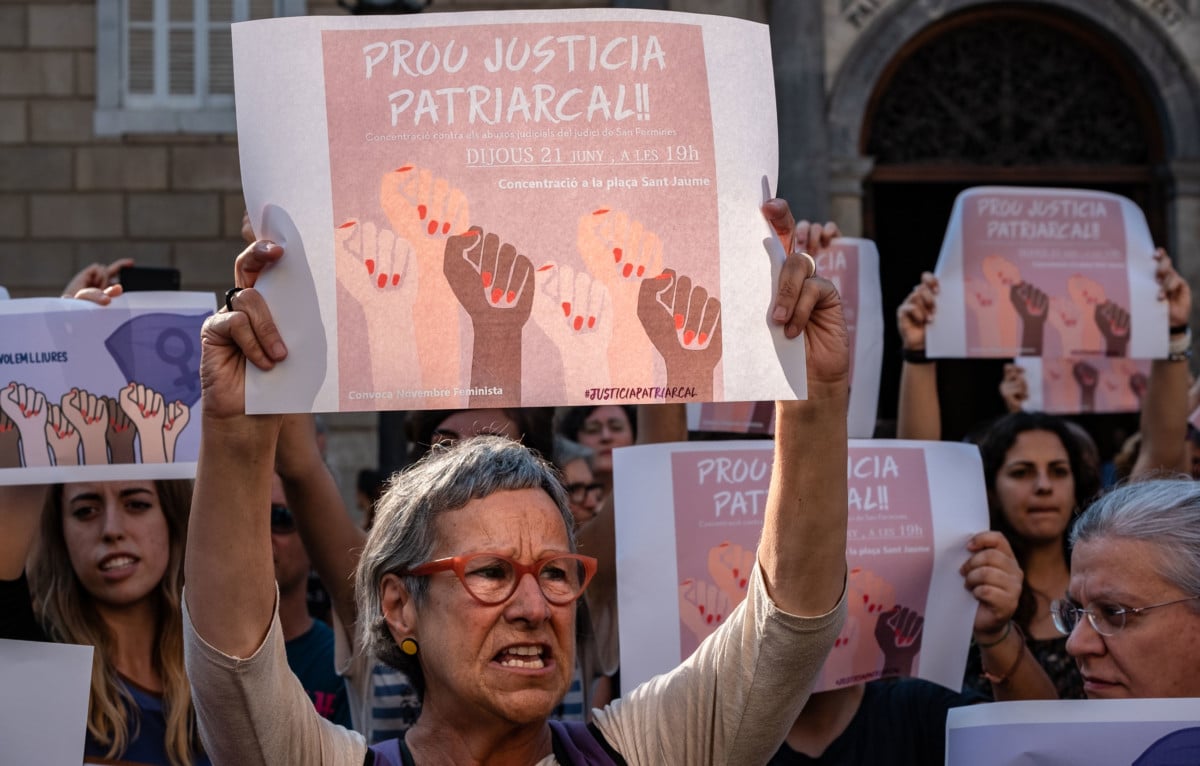If you haven’t heard about the new treaty on crimes against humanity that the United Nations has in the works, you’re not alone. Most haven’t.
What you should know is that if this treaty goes forward for adoption in its current draft form, only some – not all – people will be protected from crimes against humanity like massacres, rape, torture and persecution. This is because the treaty adopts an outdated definition of gender that some states will inevitably use to shirk their responsibility for addressing gender-based crimes.
We need this treaty, first of all, because it could help bring such atrocities to light and perpetrators to justice. The only permanent court in existence for prosecuting such crimes, the International Criminal Court (ICC), doesn’t have a mechanism for interstate cooperation, and few states have crimes against humanity incorporated into their domestic legislation.
The problem is that the draft treaty adopts the definition of gender from the Rome Statute, which established the ICC, stating: “it is understood that the term ‘gender’ refers to the two sexes, male and female, within the context of society.”
On its own, the definition does not make clear who is protected. While it’s understood to be inclusive of all gendered crimes that meet the threshold of persecution, there has never been a successful prosecution at the ICC. Not surprisingly, no other mechanism has adopted this opaque definition.
To understand how this definition of gender came about we have to go back about 20 years. During the 1990s, women’s rights advocates rallied for the term “gender” instead of “sex” to be listed alongside race, ethnicity, religion and other protected groups from persecution. A small, socially conservative opposition objected, fearing the term “gender” would more broadly affirm LGBTI rights as human rights. They also wanted to limit the scope of women’s rights.
Since then, two decades of international human rights law have solidified the definition of gender as a social construct across UN agencies and human rights mechanisms. The term sex is left for biologists. However, while the Rome Statute’s definition of the term gender is understood by legal scholars and the ICC prosecutor’s office to be inclusive, there are states that would take advantage of its opacity to ignore conflict-related gender-based crimes.
How does an outdated definition for a protected group get adopted into a new draft treaty on crimes against humanity?
While oodles of rights and protections were taken into consideration during dialogues on the draft treaty, none of the states and experts involved thought to discuss gender. Perusing the comments over the last four years of discussions and debates, not one mentions the outdated definition that was cut and pasted into the draft. While issues concerning everything from the rights of witnesses and victims to the cooperation between states were discussed in great detail, there’s no mention of women, LGBTI people, or even sexual violence.
At the start of the drafting process, a small handful of legal advocates did point to the definition and call on drafters to either not include it – as no other protected category required such a definition – or adopt a clearer definition.
Valerie Oosterveld, an international criminal law professor, raised concerns about the problematic nature of adopting a definition into the treaty that was deliberately ambiguous (possessing “constructive ambiguity,” in diplomatic parlance) in order to resolve polarised positions during negotiations. Considering that she’s one of the foremost experts on the issue of gender under international criminal law, it’s astonishing that her ideas were dismissed.
Part of the problem stemmed from the fear that the controversy surrounding the definition 20 years ago would resurface and tank the new treaty if the debate on gender were reopened. Some states and treaty drafters have expressed the need to get the treaty passed expeditiously and to keep the original language from the Rome Statute intact. But does a new treaty that codifies an outdated definition of gender serve the interests of justice?
Fighting for recognition of gender-based violence is not new. Sexual violence crimes were not taken as seriously as other crimes in the early years of international criminal tribunals. Feminists had to struggle tirelessly to secure the recognition of rape as a form of torture in certain contexts.
In the 1990s, the Human Rights and Gender Justice Clinic of CUNY Law School, (then the International Women’s Human Rights Initiative Clinic) served as the secretariat for the Women’s Caucus for Gender Justice, a global coalition of women’s rights activists working to address gender gaps in the then-draft Rome Statute. As there was push-back against the term “gender”, there was also opposition to recognising sexual violence as a serious international crime.
A key component to their success was combining advocacy with legal strategy. Gender strategies in the tribunals grew from the notion that “women’s rights are human rights.” Today, advocates are calling for a “gender equal world.”
This is a pivotal moment in history to affirm our understanding of discrimination, including when based on sexual orientation, gender identity and sex characteristics.
What we do now will affect people’s rights for generations to come. It’s time for the international community to take a stand. A treaty meant to protect people against the worst atrocities imaginable by its nature should protect all of us.
Join us in defending the truth before it’s too late
The future of independent journalism is uncertain, and the consequences of losing it are too grave to ignore. To ensure Truthout remains safe, strong, and free, we need to raise $27,000 in the next 24 hours. Every dollar raised goes directly toward the costs of producing news you can trust.
Please give what you can — because by supporting us with a tax-deductible donation, you’re not just preserving a source of news, you’re helping to safeguard what’s left of our democracy.
